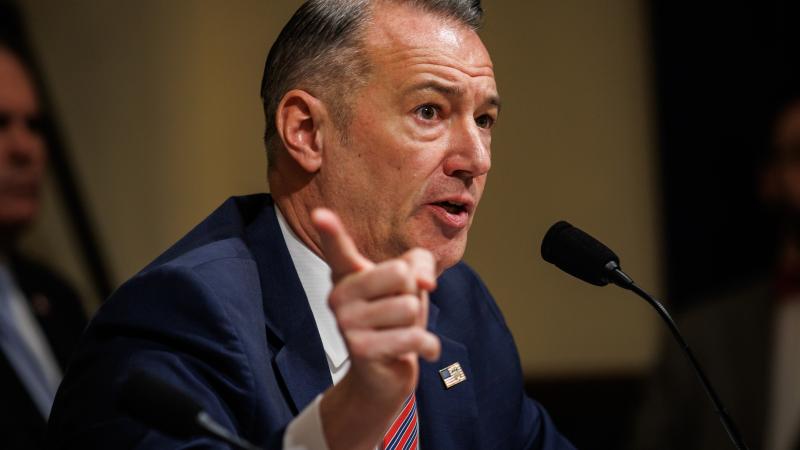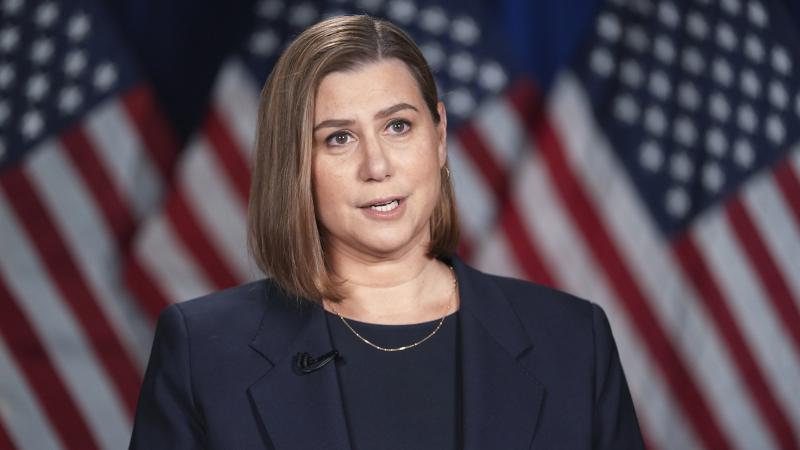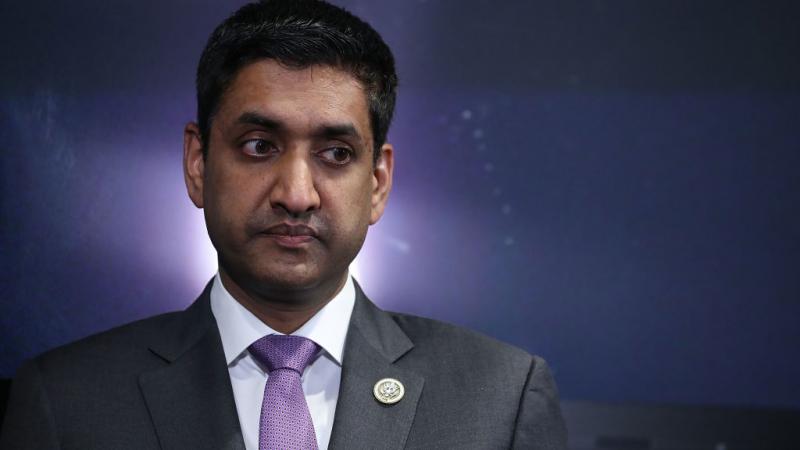Internal CIA documents, presentation show effort to mandate DEI at the center of the intel agency
The CIA’s chief diversity officer earlier this year described his department’s efforts to ingrain DEI across the agency in hiring decisions and trainings.
A newly revised Diversity, Equity, Inclusion, and Accessibility (DEI) strategy for the Central Intelligence Agency promises to put diversity at the center of promotion decisions and attempt to solidify programs to withstand changing administrations, according to internal documents and a public presentation by senior agency diversity official.
“We see it as the core of our mission,” CIA’s Chief Diversity and Inclusion Officer, Jerry Laurienti, said of DEI in a presentation earlier this year. He delivered his remarks to the biannual business meeting of the Defense Advisory Committee on Diversity and Inclusion (DACODAI) in May.
Fred Fleitz, a former CIA agent and national security official in the Trump Administration, told Just the News that DEI initiatives are “dug in quite deep” at the agency and warns they are detrimental to the execution of the mission.
“And this DEI philosophy is dug in quite deep within our government, including at the Central Intelligence Agency. They're not promoting or hiring, giving bonuses based on merit. They're using quotas. They're using DEI to promote political outcomes,” Fleitz told the “John Solomon Reports” podcast.
Laurienti described the presentation as showing how DEI is used as a key filter for candidates for promotion to leadership positions within the intelligence agency and that DEI training is integrated at all levels of leadership, according to the recording of his presentation, meeting minutes, and a CIA slide deck reviewed by Just the News.
The recording of the live presentation was posted to video streaming site Rumble. The content matches with published CIA documents and the meeting minutes from the presentation.
“Right now we already have required training for leaders at different levels,” Laurienti said. Also, “when you go into a promotion panel for a leadership and particularly uh for the senior leadership… those panels include our head of talent and then the head of each directorate and then myself.”
Performance, corporate mindset, and DEI
The promotion panel assesses each candidate under three criteria, Laurienti said: mission performance, corporate mindset, and DEI.
“And on that third one, they have to show uh, not just that they have been contributing corporately, but rather the impact of their efforts on DEIA,” he said.
According to Laurienti, this means that “they’re creating an equitable inclusive environment within their teams for mission performance all day every day.”
“I do not want to hear that it's something that they did after work or that they just do corporately that I want to hear that it's something that they're doing all day every day so that each person in their unit is able to come to work with this on the job, not focused on trying to fit in,” he added.
He also confirmed that DEI has impacted promotions at the agency. “I can tell you in the last two years of panels, we’ve lifted people up and we’ve pushed people down based on those meetings.”
The CIA workforce also has an eye towards making the DEI programs permanent regardless of which administration occupies the White House.
On one slide from Laurienti’s presentation lists conclusions his office drew from workforce feedback about the agency’s DEI programs. One conclusion is that the workforce wants to see programs that endure despite changes in leadership at the White House, even though the President directly controls all executive branch agencies under the Constitution.
“Not be easily shaken or crumbled due to executive administration changes,” the slide reads.
The agency’s workforce also wants DEI programs to “Help create a sense of psychological safety for all” and “Move past perceived ‘performative’ actions.”
You can read the presentation and meeting minutes below:
The 2024-2027 CIA Diversity, Equity, Inclusion, and Accessibility Strategy highlights the importance of cementing DEI criteria in hiring and promotion panels, corporate communications, and training courses.
“When equity and inclusion are incorporated into processes and procedures, CIA is better enabled to create and sustain a workplace where all officers can safely contribute to mission success,” the strategy reads.
Diverting resources to DEI initiatives
The goals also outline that the CIA should work to “reduce barriers that may impact hiring, promotion, and/or advancement opportunities for individuals from underrepresented groups.”
You can read the strategy below:
Fleitz warns that America’s “mortal enemies” are happy to see the agency diverting resources to DEI initiatives rather than its premier intelligence capabilities, which he says are suffering.
Our enemies are “quite pleased to see what used to be the premier Intelligence Service wasting all this time and energy and persecuting people who don't support this philosophy,” he said.
He diagnosed the problem as a mix of risk aversion developed in from bad calls during the War on Terror and the infiltration of DEI into the hiring and promotion process.
“[F]irst of all, [the CIA is] suffering from risk aversion and careerism. They've made the cost of being wrong too high, and analysts are encouraged not to stick their neck out, not to make bold predictions or conclusions, and when you read a top assessment, there may be 12 pages of key judgments, and they're worded in such a way so it's much it doesn't mean anything,” Fleitz said.
“So the analysis was already in trouble, and now it's being undermined by the fact that we're not hiring the best and brightest to do this analysis,” he added.
Agent says "cross-dressing improved his skills"
Earlier this year before the presentation, the broader Intelligence Community came under scrutiny for focus on DEI after an internal newsletter featuring a cross-dressing agent also highlighted several progressive topics like gender identity and a focus on problematic or offensive language.
The featured agent wrote that cross-dressing improved his skills at “understanding clandestine assets” and overcoming his own “identity-based biases and mindsets.”
“I am an intelligence officer, and I am a man who likes to wear women’s clothes sometimes,” the agent wrote. “I think my experiences as someone who crossdresses have sharpened the skills I use as an intelligence officer, particularly critical thinking and perspective-taking.”
Fleitz said it will be up to a future administration to fight efforts to ingrain the practices and push back. “There's no room for social engineering in an organization that's crucial,” he said. “But if you listen to…this briefing, read these slide decks, they have pushed DEI from top to bottom throughout the entire organization.
“Now I think a future administration can reverse this, but you can see the DEI bureaucrats and CIA, they are digging in,” he added.
“The whole culture of the agency has to be changed to focus on the fact that, under law, their mandate is to support the president, to help him make good national security decisions. And I think the President will have to choose someone who understands the complexity of the problems that have been building at CIA for decades,” Fleitz said. “It's deep, it's very serious, and addressing this is going to be hard.”














